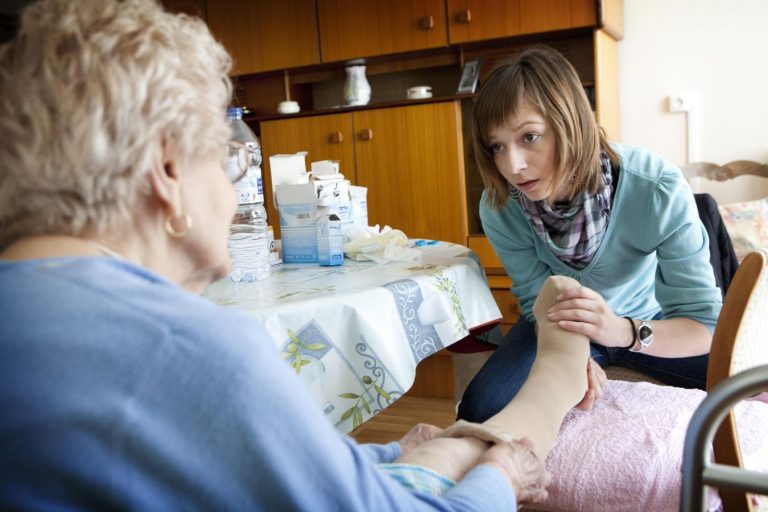Many families face the task of figuring out how to get help at home for their aging loved ones. Typically, we at AgingParents.com giving advice to families, see the daughter or daughter-in-law taking the lead on the effort. As no one teaches us how to do this in school, it is sometimes a daunting task to figure out what all the “non-medical”agencies and other sources of help actually offer by way of home care workers.
The word “nurse” is used by the public to suggest that that is the caregiver they’re looking for. But skilled nursing is expensive, and for long term care at home, Medicare does not pay for skilled nursing. Only licensed home health agencies offer skilled nursing, generally together with physical therapy, occupational and speech therapy. Short term help with skilled care is sometimes offered after a family member had a stroke, for example, and is being discharged from a hospital or “rehab” facility, also called a skilled nursing facility. Once the patient has reached what they call “maximum rehab potential” with these skilled services at home, Medicare cuts off payment and services end. This care may last a few weeks only.
What is “non-medical” care at home?
Individual providers and home care agencies, which do not provide any skilled nursing or skilled therapies may offer a variety of worker types. They may be classified as follows:
1. Certified Nursing Assistants. These folks are trained to work in skilled nursing facilities if they choose to do so. They know how to take blood pressure and other vital signs and work in a team. Different states have different qualifications, but usually the CNA has at least a few weeks of training to become certified.
2. Certified Home Health Aides. Like CNAs, HHAs have specific training to work in the home setting, and expect to do so. Certification of any kinds sets this worker a little apart from any uncertified worker, because the training is specific and standardized in the state.
3. Dementia-trained home care workers. Caring for individuals with dementia can present specific challenges. Behavior may be difficult. Aggressive verbal or physical outbursts, wandering, sleeping during the day and being awake all night are some examples. Training for workers to manage dementia-related issues is not standardized. Typically, if an agency holds itself out as offering dementia trained workers, it will charge a higher hourly rate for this. One seeking this kind of worker needs to ask a lot of questions about the qualification and training of any worker offered.
4. Home care workers, general. This is the most common kind of help people hire for an elder at home. They assist with things we call “activities of daily living” (ADLs), which means walking, bathing, toileting, dressing, eating and getting from bed to chair and back. Some workers took care of an elder in their own families and that is their only training. Others have had in person or online courses in home care. And some have little to no formal training. If you need to keep costs down, this level worker tends to be less expensive on an hourly basis compared with those certified or specially trained, but it does have risks.
5. Companion care workers. These are folks who do not help with ADLs but offer socialization, transportation, and may do cooking and shopping and other tasks with or for the person in need. This level of care is also available through many home care, non-medical agencies. It is a way to prevent social isolation. It’s company, conversation and someone to take your elder to enjoyable events. You have to know what to ask for if this lower level of need is what your elder requires. It typically costs less than someone who assists an elder with ADLs.
In summary, it can be daunting to figure out what the elder can afford, what kind of worker will be best and where to find the right person to assist your loved one. However, by giving a clear description of what your elder needs to those who offer services, and by asking the right questions, you can find a match.
Prevent Pitfalls in Hiring
It is critical that you or your elder hire right. For guidance on avoiding mistakes, see my book, Hiring A Home Care Worker: What Could Possibly Go Wrong? It draws on my years of being an RN who visited people at home all day and in training and supervising home care workers myself. You want to be able to understand the risks of having an unknown person with an elder, probably unsupervised, for many hours. If you are considering getting help for a family member with dementia, be particularly cautious about protecting the vulnerable person from abuse.
Read the full article here









